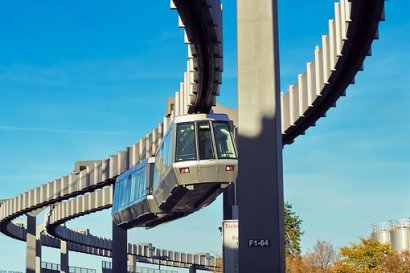The improved performance of the communication technologies and computers has positively impacted the transport industry. Automatic passenger counting systems, automatic vehicle location systems, electronic fare payment systems, advance passenger information systems are some of the common innovative technologies that are now witnessed in the transportation sector.
 The transportation sector has its unique requirements that are ever evolving. IT firms, on the other hand, are always working hard to stay ahead and come up with even more advanced technologies to run the business. The IT firms are coming from the advanced technologies based on the customer experience and are working to streamline the operations of the transportation firms. In fact, most leading logistics and transportation firms understand the requirements of the sector and inform technology industry about the need and challenges in the transportation industry. They inform technologies about the rising in resource costs, increase in required security challenges among other challenges.
The transportation sector has its unique requirements that are ever evolving. IT firms, on the other hand, are always working hard to stay ahead and come up with even more advanced technologies to run the business. The IT firms are coming from the advanced technologies based on the customer experience and are working to streamline the operations of the transportation firms. In fact, most leading logistics and transportation firms understand the requirements of the sector and inform technology industry about the need and challenges in the transportation industry. They inform technologies about the rising in resource costs, increase in required security challenges among other challenges.
Technology in the transport sector
The transportation industry has adopted some technologies that enable them to meet some challenges. Technology solutions consultants help to improve business operations in various ways such as optimization of data center infrastructure. Most innovators partner with technology giants such as HP, Dell, Microsoft, Lenovo, and others to deliver effective technological solutions. Effective technological solutions offer some benefits, which include:
- It reduces the operational costs and ensures that the technological assets are consolidated to allow the business run smoothly.
- It streamlines the business operations and minimizes downtimes improve the customer experience.
- Reduce the cost of errors through the integration of the commodities with ERP systems, fuel surcharges and accessorials in one system. With such systems, you have not to worry about keying wrong information in the system.
- Improve customer service experience through the provision of critical information such as transport charges in time to the customers.
- It makes it easier to access real-time freight data and analysis, which help to calculate the total costs and make informed decisions.
 While the impact of technology in the transport sector is already apparent in the transport industry, higher impacts are even expected in the future as the technology even advanced further. The traditional models were majorly based on independent functions of the service planning, operational controls, and passenger information. In future, the public transportation systems are likely to feature more advanced information, and better communications between the operating personnel and operation managers will be able to make better-informed decisions.
While the impact of technology in the transport sector is already apparent in the transport industry, higher impacts are even expected in the future as the technology even advanced further. The traditional models were majorly based on independent functions of the service planning, operational controls, and passenger information. In future, the public transportation systems are likely to feature more advanced information, and better communications between the operating personnel and operation managers will be able to make better-informed decisions.
